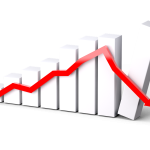You can’t put a price tag on happiness and fun moments. But when going on a vacation, you must be mindful of how much you spend because, like time, money also flies when you’re having fun! Instead of digging into your savings, regularly investing to fund your holiday would be a wiser choice, right? Recurring Deposits (RD) and Debt Mutual Funds are two such plans that you can look at.
What are RDs and Debt Mutual Funds?
A recurring deposit is like a savings plan. You put a fixed amount of money into it every month, and it grows with interest. It's great for steady savings. A debt mutual fund is a type of investment fund where investors pool their money together, and the fund manager invests that money primarily in fixed-income securities like government bonds, corporate bonds, treasury bills, and other debt instruments.
But investing in an appropriate fund is a task that needs attention, knowledge and experience. You must seek a professional’s help before making the final decision so that it does not upset your financial goals and you do not regret the decision later for lack of understanding.
Comparing RD and Debt Mutual Funds can help you make the right choice per your investment capacity. Here’s something to help you decide:
| Recurring Deposit | Debut Mutual Funds |
| Guaranteed returns with a fixed interest rate | Returns may vary based on the fund’s performance. |
| Very low risks since bank deposits are insured | Risks can vary since mutual funds are market-linked |
| Can be liquidated with a minor penalty | Have a higher liquidity rate than Recurring Deposits |
| Interest earned is taxable as per the income slab | Different taxation for different periods. |
Choose wisely between Recurring Deposits and Debt Mutual Funds depending on your risk appetite and time before planning your vacation. Consulting a certified financial adviser would help in making the right choice. Bon voyage!







